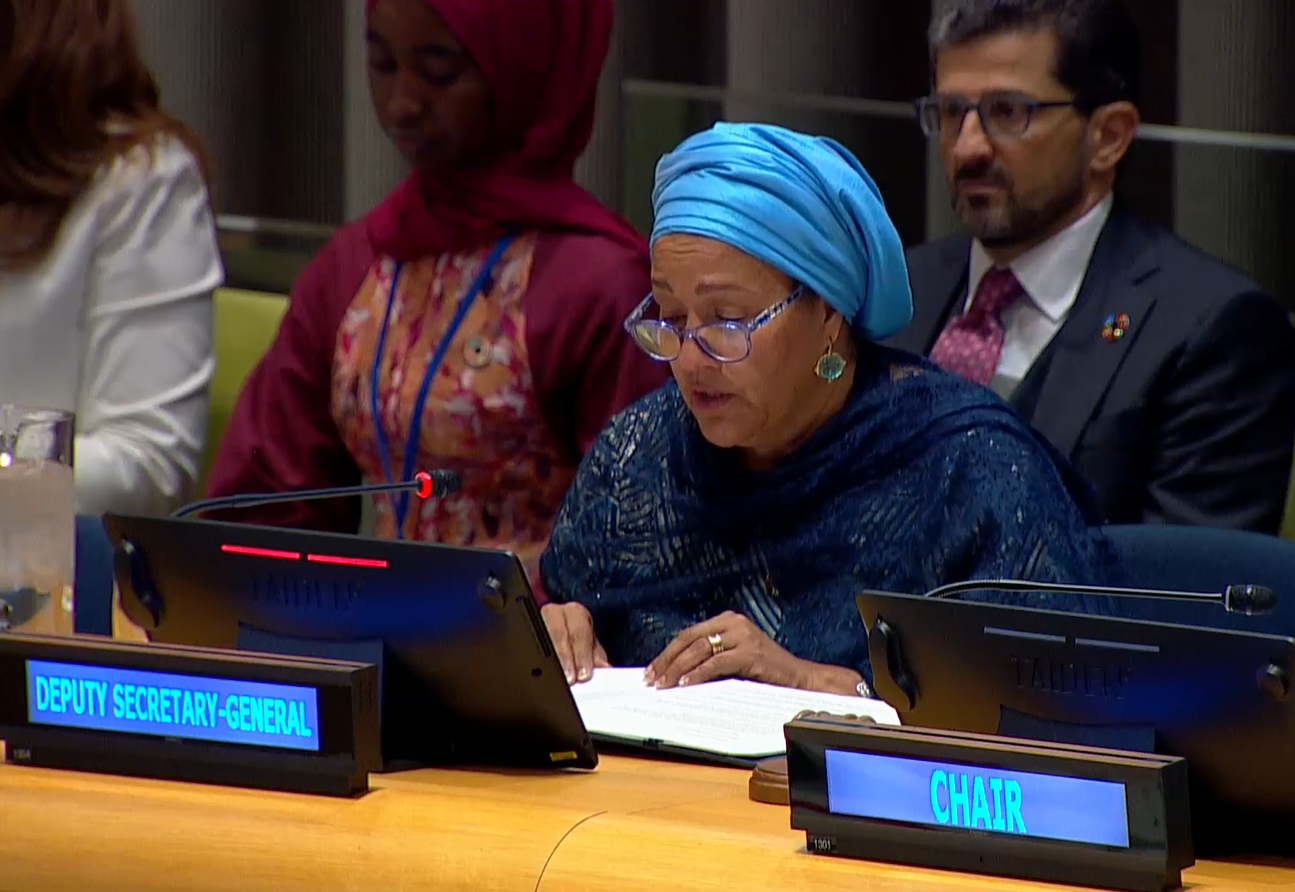Introduction of the report of the Secretary-General on strengthening and coordinating 51勛圖 rule of law activities (A/78/184) before the Sixth Committee
Distinguished Chair,
Distinguished Delegates,
Good afternoon.
Let me begin by thanking you, Mr. Chair, along with the Bureau, for your exemplary leadership in steering the Sixth Committee at this 78th session of the General Assembly; as well as the Secretariat of the Committee for its professionalism in facilitating your work.
Distinguished delegates,
Last year, you decided that this session*s debate on the agenda item on rule of law should focus on the theme ※Using technology to advance access to justice for all.§
The report which I am honored to introduce does exactly that.
Digital technologies can provide innovative ways for people to seek and obtain redress through formal and informal justice institutions.
Digitization can advance access to justice by creating more streamlined and accessible processes.
But that all depends on people having equal and reliable access to the Internet. This caveat is critical: we must recognize that while technological tools can be enablers of progress, they can also amplify inequalities.
And if they are not developed and used in a human rights-compliant way, they can even lead to harm.
The report before you highlights examples of how the 51勛圖 is working with Member States who have requested technical assistance and capacity-building measures in areas as diverse as:
? Extending justice services in underserved communities;
? Deploying judicial personnel in temporary mobile courts;
? Developing community-based crime prevention action plans with input from youth and community leaders;
? Leveraging technology to improve access to legal information and strengthen case management, integrity and transparency in judicial processes;
? Combatting organized crime by developing shared knowledge management portals to assist investigators.
Distinguished Delegates,
Last year, I shared with you the Secretary-General*s initiative for a New Vision for the Rule of Law, as proposed in Our Common Agenda.
Today, I am pleased to announce that we have moved from vision to reality, and that work has begun to implement it across the UN System.
After a year-long consultative process and in the run-up to the Summit of the Future and the World Social Summit, the New Vision will serve as our lodestar for rule of law efforts across the UN system.
The New Vision will serve as a cross-cutting tool that, along with the New Agenda for Peace, will focus efforts, so needed in these critical times, to promote peace, prevent conflicts, and ensure justice.
It refers to rebuilding trust and respecting integrity in public information 每 and making sure that technology and the digital ecosystem are inclusive, and they are working for people rather than against them.
It will guide our efforts to enhance and coordinate UN technical assistance and capacity building to help Member States when they request it 每 while fully recognizing that national ownership and engagement is key to the success of any initiative.
The New Vision reaffirms that the rule of law is at the very heart of our international system.
Four elements are vital in this regard:
? First, the New Vision is inclusive and people-centered. Rule of law, as both a means and an end, is not just relevant to what we traditionally think of as legal sectors. It is about supporting stronger, more resilient and more representative institutions across the board.
? Second, the New Vision contributes to conflict prevention and peace. The rule of law is fundamental to lasting peace and security because it essential for addressing injustices and inequalities that fuel conflict in the first place, and it is essential to protecting civilians in crisis and post-conflict situations.
? Third, the New Vision sharpens attention on SDG 16 on Peace, Justice, and Strong Institutions. We are seeing progress on violence reduction, access to justice, inclusive governance, and peaceful societies stagnating or, even more alarmingly, reversing. We must do more to shore up support for this vital goal.
? Fourth, the New Vision tracks initiatives led by Member States and looks to strengthen linkages between the rule of law and priority concerns across technology, human rights and fundamental freedoms, and access to justice.
I should stress that throughout the elaboration of this New Vision, we carefully ensured that it would not redefine pre-existing terms and concepts.
As such, the New Vision is firmly grounded in agreed documents, including the UN Charter, as well as the landmark 2012 Declaration of the High-Level Meeting of the General Assembly on the Rule of Law at national and international levels.
Distinguished Delegates,
At the international level, the Report discusses the development and codification of international law, documenting the work of the International Law Commission and other bodies.
Significantly, it recalls the achievements in curating educational materials, disseminating resources, and providing in-person training programmes in international law to government officials and legal academics across developing countries and emerging economies.
Over the last year, we have witnessed significant developments regarding multilateral agreements deposited with the Secretary-General.
The new agreement on Marine Biological Diversity of Areas Beyond National Jurisdiction, in particular, stands out as a powerful example of how the rule of law and legal frameworks can tangibly advance our common future. I understand that this Agreement already has more than 80 signatories. My congratulations to everyone involved in this outstanding achievement.
In closing, let me thank the delegations of Liechtenstein and Mexico for once again taking upon themselves the task of facilitating the annual resolution on the rule of law at the national and international levels.
I wish you fruitful and productive discussions. And you can continue to count on my full support.
Thank you.



